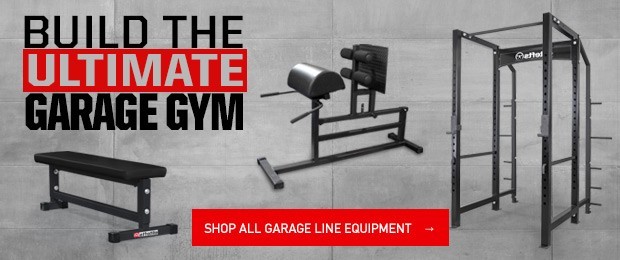
With the current landscape that we are dealing with, it is understandable for people to raise concerns. If you are a business owner, that concern level could be even higher than most – after all, you probably have a lot of people that count on you and your business, whether it be services or employment. So as a business owner, manager, etc., concern and stress are always going to be part of the equation. In times where there is a lot of uncertainty and unknowns, the conversation is not whether or not you have to deal with stress or constraints – the conversation is HOW do you handle those stresses and those constraints.
One of the earliest lessons I learned about dealing with restriction and constraint came from a creative writing class (of all things) in undergrad. Each week we were given a writing assignment to complete by the next week, and each week, the writing assignment had a different constraint on what you could or couldn’t write. Usually, this constraint was based upon the style of writing that we were learning. Sometimes it would be restraints on the first and last word in each line, and other times the story had to follow an underlying writing theme.
RECENT: The Slipperiest Slope in Fitness
To be completely honest, I don’t remember the constraints themselves or what their proper naming was. What I do remember is as long as I could get past the initial stress and effort created by restrictions on my writing; the resulting product was immensely better. The constraints forced me to adapt and create in ways that I would have never even thought, had they not been there. Now, don’t get me wrong, this is not to say that bad things don’t happen to good people. They do. There will always be good times and bad times, but at the end of the day, when constraints begin to close in around us, there are typically two types of people – the people who find the good in a situation and push forward and the people who focus only on the bad and fall back.
Think of it this way: We all know that lifter that pushes themselves way too hard and refuses to back off and take time to let their body recover. They are so focused on go, go, go, that they forget the importance of focusing on the underlying processes in their body that are vital to their success. They continue to get away with ignoring their little signals from their body that they need to slow down. Maybe they have a few small injuries but find a way around them by using a few (dozen) anti-inflammatories or taking a day or so off until eventually something big happens (a tear, fracture, etc.) and now they are forced to take that time off from being under the bar.
Is that immediately a good thing? No. Certainly not. But this becomes a forced deload that, in the grand scheme of a career, may have been exactly what they needed (certainly at the very least what they had coming to them) to get to that next step in their career. At the very least, it helps their joints, ligaments, and other tissues that are slow to recover to finally heal. It could, however, also force them to address and bring up a weak point or learn more about training. Again, once the reality is set, the only real variable that will change the outcome is how you choose to respond.
So, I challenge you to think of this economic shutdown as the same thing – a forced deload. Is it something that you want? No. Will it completely crush you? Probably not. Will you look back on this period five years from now and look at it as being the worst thing ever? It all depends on how you respond. Here are three suggestions to help you find the good in your personal life or business and keep moving forward.

troyzen © 123rf.com
1. Finish Your To-Do List
If you are like most regular businesses or regular people, there is probably a special to-do list that has become more of a “someday I’ll get around to it” list. For businesses, this list often includes operational or administrative work such as redoing contracts, creating workflows and systems for the things you do every day or updating your operating manual. These are all vital to the structure of your business, especially if you plan to sell, franchise, or scale it and need to be updated periodically to reflect current business practices. At home, your list may be something like cleaning the house, finishing landscaping, or fixing something that you keep telling yourself you’ll “get to later.” In times when sales are lower, or we find ourselves with a lot of extra time at home, that “someday” list needs to be now.
Every business and person wishes it had 2-4 weeks to sit down and do nothing but catch up on tasks – well, here it is. And if you attack these things, you might look back when this is all over and see that it was exactly what you needed.
2. Lead By Example
Leaders carry the load. When things aren’t going the way you had hoped, it’s the leader’s job to pick up the slack and keep everyone moving forward. So, whether you’re a head strength coach, business owner, or simply the head of your family, it is on you to direct the ship and decide how your business, team, or family is going to respond to a situation.
One of the biggest things you can do as a leader is just to keep pushing forward. If your employees hear nothing but uncertainty and see nothing from you but moping around and not producing – why would they do anything differently? If at home, you are always stressed out, yelling, or laying around on the couch complaining, what do you think the mood will be for the rest of the family. I’m not saying it’s easy. It’s certainly not. But leaders don’t get to have bad days or take a day off. Because if they do, it will affect everyone else.
Another way to lead could be changing it up a bit. Having the kids do different chores or letting employees into different roles or positions and seeing how they respond can produce some interesting results and help you learn more about the people at work and at home. You may discover that your kid is not great with set tasks like taking out the garbage but excels at the creativity of making sure all the dishes fit into the dishwasher. Similarly, you may find tasks in the workplace that your employees are better or worse at as well, allowing you to put them in the best position to help the company and find more enjoyment and fulfillment in their work.
3. Create Your Own Opportunities
As previously noted, the most stressful times have a way of bringing out the best in us. This can only happen, however, if you’re able to push through the muck and look for opportunities. No new venture, invention, or product was created because other currently available options were great. They come from necessity and problems that need to be solved. So what problems can you solve during this time? Could your kids need more attention with school work? Could this be a time to instill a new family tradition? Creativity is all about coming up with something that improves your current status and makes life better. But if all you are doing is focusing on the bad, you’ll never find the time to create something useful.
From the business aspect, creating could be as complicated as developing a new service based on the shifting market or as simple as developing a new spreadsheet to track key indicators of the business. Even having the guts to face the raw data coming in may allow you to create a better follow-up or acquisition process with your clients. Whatever the nuance, remember that creativity can only come from problems, so rather than running away from a problem or avoiding it, you should be seeking out the problems as they could be the starting point on the roadmap towards huge improvements in your business.











1 Comment